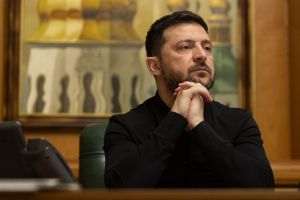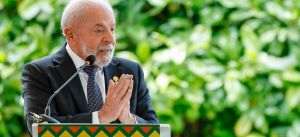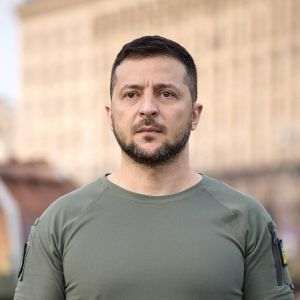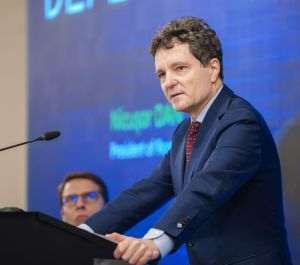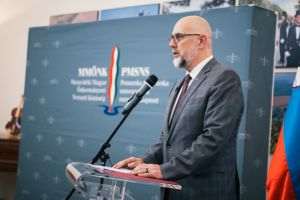Although seeking nuclear weapons has been blatantly rejected by Iranian authorities, there are still baseless and repetitive accusations by Israeli regime and its conservative supporters in the United States. According to these fabricated claims, it would be 20 years by now that Iran was supposed to reach nuclear weapons. On the verge of the new US administration and different approach toward respecting multilateralism which enshrined in JCPOA, Iran's stance against nuclear weapons gets more evident. Iran has decisively blamed any attempts to reach mass destruction weapons. Besides to the internationally recognized commitments, Iran has its own logic; the religious decree of its leader.
Iran took the first steps of its nuclear program on 1950s under the U.S. Atom for Peace program which ended upon the 1979 revolution. Later on Iran signed nuclear cooperation agreement with Pakistan, China and Russia in the late 1980s and early 1990s but the US spares no effort to halt any cooperation in Iran's program.
Beginning of the crisis was 2002 by some assertions about undeclared activities. To prove its good faith and assure the international community, Iran lunched negotiations with the EU-3 (France, Germany, and the United Kingdom), and agreed in October 2003 to cooperate with the IAEA, sign Additional Protocol, and temporarily suspend enrichment activities.
However, the referral of Iran's case to the Security Council has caused the political gridlock. While the Nuclear Non-Proliferation Treaty (NPT) entitles Iran to enrich and stockpile uranium and construct a heavy-water reactor for civilian purposes, six UNSC resolutions had called Iran to suspend its program. In 2015, Iran and six major powers (P5+1) plus European Union after two years of intense negotiations reached a historic agreement called Joint Comprehensive Plan of Action (JCPOA) to end the longstanding dispute. According to the agreement which is the crowning achievement of multilateral diplomacy, Iran accepts major restrictions on its nuclear program in exchange for lifting economic sanctions. In 2018, in response to the US withdrawal from JCPOA and re-imposition of unilatera
sanctions in violation of the UNSC 2231, Iran has gradually rolled back on its commitments in accordance with article 36 of JCPOA.
Iran's nuclear program has received continued scrutiny from international monitors who had wide access to Iranian nuclear and even some military sites. IAEA as the most specialized organizations in nuclear related issues has never reported a proven deviation to nuclear weapons by Tehran. In the most recent case on August 26, 2020, Iran agreed to provide IAEA access to two locations that are not part of Iran's nuclear program, to ease any doubts. In spite of the baseless accusations mainly by a regime which never been a member of NPT and the only possessor of nuclear warheads in the Middle East region named Israel, there is not any single trace of Iran's aspiration to achieve nuclear weapons.
Apart from economic reasons, military risks, international consequences and other possible grounds, nuclear weapons basically have no place in Iran's defense doctrine, because the Supreme Leader prohibited any attempt toward it. According to the religious decree which dates back to the mid-1990s, acquisition, development and use of nuclear or other mass destruction weapons are banned. In practice, Iran has proved its adherence to this religious decree during the 8-year war with Iraq. Despite using chemical weapons against civilians by Iraqis, Iran never responded in that kind because of contradiction to the Islamic laws.
As one of the most prominent Shiite religious figures, Supreme leader in different speeches has reiterated to this notion in different wordings to ease any concern, for instance: "In fact, nuclear weapons are not economically useful for us. Furthermore, intellectually, theoretically and juridically [from Sharia point of view] we consider it wrong. We believe using such weapons are a great sin and stockpiling them are futile and harmful and dangerous and never go after it.' In another example Ayatollah Khamenei said: "We do not want an atomic bomb. We are even against having chemical weapons. Even when Iraq attacked us with chemical weapons, we did not produce chemical weapons. This is against our principles.'
More explicit language on the matter mentioned on 2005: "Using atomic weapons to destroy other nations is an American behavior...Islam does not allow us [to produce and use the atomic bomb].'
Not only as a religious quote, Iranian officials stressed on the importance of this fatwa in various occasions. For example at an emergency meeting of the International Atomic Energy Agency in 2005 the Iranian representative expresses that: "The Leader of the Islamic Republic of Iran, Ayatollah Khamenei, has issued the fatwa that the production, stockpiling, and the use of nuclear weapons are forbidden under Islam and that the Islamic Republic of Iran shall never acquire these weapons.'
"We have never sought nuclear weapons ... With or without the nuclear deal we will never seek nuclear weapons' said Rouhani, president of the Islamic Republic of Iran. Foreign policy decision of Iran must be in line with the Islamic law which is enshrined in the 1989 constitution. Once such a clear and direct fatwa issued by Supreme Leader, it will be binding to all Iranians in their personal capacity and all administrations. Iran has no interest to reach nuclear weapons and more importantly as a religious democracy it could damage its moral high ground if the government fails to abide by its religious decree of the Supreme Leader.







